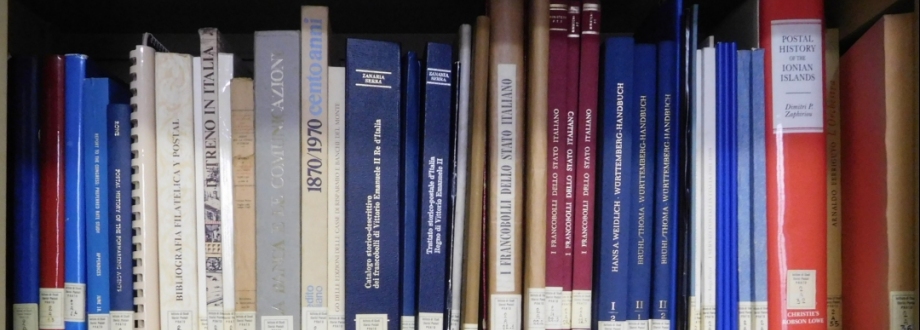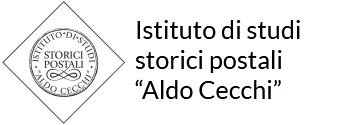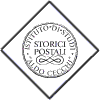Activities – An Overview

The Institute’s aim is the creation and dissemination of research on topics in postal history through publications, courses, workshops, exhibitions, and other cultural and academic events. Above all we seek to enhance the involvement of universities in postal history research, while proposing lines of research for advanced postal-history collectors and philatelists.
Since 2004, the Institute has organized annual “Colloqui di storia postale” (postal history colloquia), each year focusing on a different, predefined theme. This forum has enabled academic researchers, amateurs, and experts to compare research methods and to devise new and fruitful modes of collaboration.
Since 2004, the Institute has organized annual “Colloqui di storia postale” (postal history colloquia), each year focusing on a different, predefined theme. This forum has enabled academic researchers, amateurs, and experts to compare research methods and to devise new and fruitful modes of collaboration.
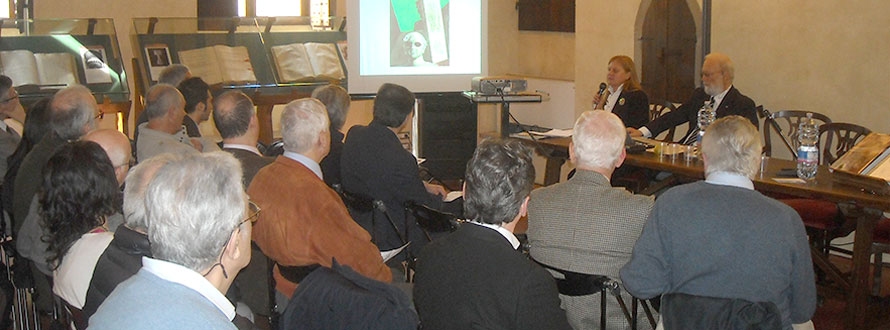
Between 1983 and 1993, the close proximity between the Institute and the Archivio Datini led to the convening of a series of workshops on "Posta e Paleografia" (Post and Paleography) that focused on the study of “merchant” paleography – a highly specialized genre distinct from curial and chancellery scripts.
In 2002 the Institute began to organize a series of conferences on a wider array of themes. These began with an international symposium on “Communication and its Lines – Telegraphy in the 19th Century among Economy, Politics and Technology” that brought together a wide array of specialists from Italy, Europe, and North America. Since that time, members of the Institute have participated in numerous roundtables, meetings, and conferences both in Italy and abroad.
In September 2003, the Institute joined together with the State Archives in Prato to organize an advanced workshop on the history of writing and communications. These workshops, which brought together scholars from around the world, were held annually between 2003 and 2008.
These workshops proved useful in helping the Institute develop a research agenda. As early as 1983 the Institute began its own publishing project – Quaderni di Storia Postale – which featured monographic essays on issues ranging from pontifical couriers, medieval merchant correspondence and the military post to the postal history in the Risorgimento, communications between Italy and Poland in the 16th century, Napoleonic postal reforms, and many other themes. Since 1999 the Institute has published the journal Archivio per la storia postale – Comunicazioni e Società, which has expanded the Institute’s voice to the most important scientific circles around the world.
In 2002 the Institute began to organize a series of conferences on a wider array of themes. These began with an international symposium on “Communication and its Lines – Telegraphy in the 19th Century among Economy, Politics and Technology” that brought together a wide array of specialists from Italy, Europe, and North America. Since that time, members of the Institute have participated in numerous roundtables, meetings, and conferences both in Italy and abroad.
In September 2003, the Institute joined together with the State Archives in Prato to organize an advanced workshop on the history of writing and communications. These workshops, which brought together scholars from around the world, were held annually between 2003 and 2008.
These workshops proved useful in helping the Institute develop a research agenda. As early as 1983 the Institute began its own publishing project – Quaderni di Storia Postale – which featured monographic essays on issues ranging from pontifical couriers, medieval merchant correspondence and the military post to the postal history in the Risorgimento, communications between Italy and Poland in the 16th century, Napoleonic postal reforms, and many other themes. Since 1999 the Institute has published the journal Archivio per la storia postale – Comunicazioni e Società, which has expanded the Institute’s voice to the most important scientific circles around the world.
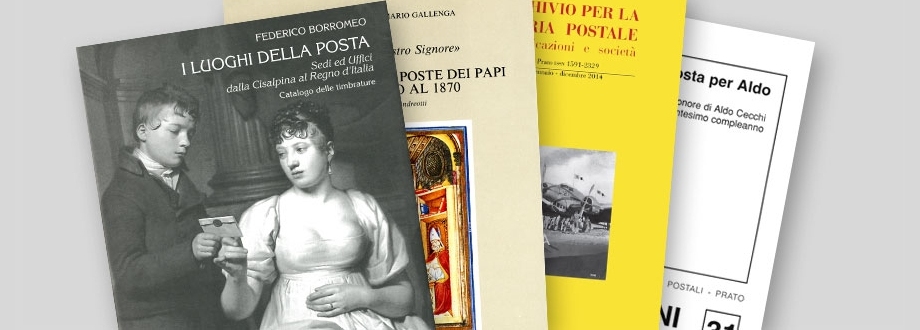
One of the Institute’s activities is the management of a rich, specialized library, with a digitized catalogue that includes documents from guides and ancient postal maps to recent philatelic books. The catalogue includes over 30,000 entries that are available online in the Catalogo Collettivo Provinciale di Prato (Prato Provincial Catalogue).
Since 1989, other highlights in the life of the Institute have included the organization of, and the participation in, many documentary exhibitions at prestigious venues such as the Italian Chamber of Deputies in Palazzo Montecitorio, in Rome.
The Institute has also carried out major research projects in Italian public archives such as the State Central Archives, the Historical Diplomatic Archive of the Ministry of Foreign Affairs, AUSSME – Archive of the Italian Army General Staff, and the Italian and Foreign State Archives. This research has furnished the basis for most publications of the “Quaderni di Storia Postale” and has increased the documentary holdings of the Institute’s archive.
It goes without saying that financial challenges have always impeded the Institute’s activities. From the standpoint of the law, the Institute is a private association that relies for its principal funding on member contribution and outside donations – neither of which today cover its everyday operations. Until recently the Institute received contributions for specific projects from CNR, MIBAC (the Italian Ministry of Culture), the Tuscany Region, the Province of Prato, the Council of Prato, and the Fondazione Cassa di Risparmio di Prato. Although these contributions were modest, they nevertheless helped the Institute to survive. In 2002 the Institute achieved an important goal: it was granted legal recognition by the Italian State, also thanks to the Council and the Province of Prato, which joined the Institute as supporting members – an essential action for establishing the capital funds required by Italian law. In 2003, the Tuscany Region added the Institute to its official list of regionally important cultural institutions.
As regards the future of postal history in Italy, the uninterrupted activity of the Institute, and the upsurge of dissertations considering various aspects of postal history, are a welcome sign, as is the growing number of researches by PhD students in Italian archives. Besides, more and more foreign researchers are contacting the Institute.
Since 1989, other highlights in the life of the Institute have included the organization of, and the participation in, many documentary exhibitions at prestigious venues such as the Italian Chamber of Deputies in Palazzo Montecitorio, in Rome.
The Institute has also carried out major research projects in Italian public archives such as the State Central Archives, the Historical Diplomatic Archive of the Ministry of Foreign Affairs, AUSSME – Archive of the Italian Army General Staff, and the Italian and Foreign State Archives. This research has furnished the basis for most publications of the “Quaderni di Storia Postale” and has increased the documentary holdings of the Institute’s archive.
It goes without saying that financial challenges have always impeded the Institute’s activities. From the standpoint of the law, the Institute is a private association that relies for its principal funding on member contribution and outside donations – neither of which today cover its everyday operations. Until recently the Institute received contributions for specific projects from CNR, MIBAC (the Italian Ministry of Culture), the Tuscany Region, the Province of Prato, the Council of Prato, and the Fondazione Cassa di Risparmio di Prato. Although these contributions were modest, they nevertheless helped the Institute to survive. In 2002 the Institute achieved an important goal: it was granted legal recognition by the Italian State, also thanks to the Council and the Province of Prato, which joined the Institute as supporting members – an essential action for establishing the capital funds required by Italian law. In 2003, the Tuscany Region added the Institute to its official list of regionally important cultural institutions.
As regards the future of postal history in Italy, the uninterrupted activity of the Institute, and the upsurge of dissertations considering various aspects of postal history, are a welcome sign, as is the growing number of researches by PhD students in Italian archives. Besides, more and more foreign researchers are contacting the Institute.
